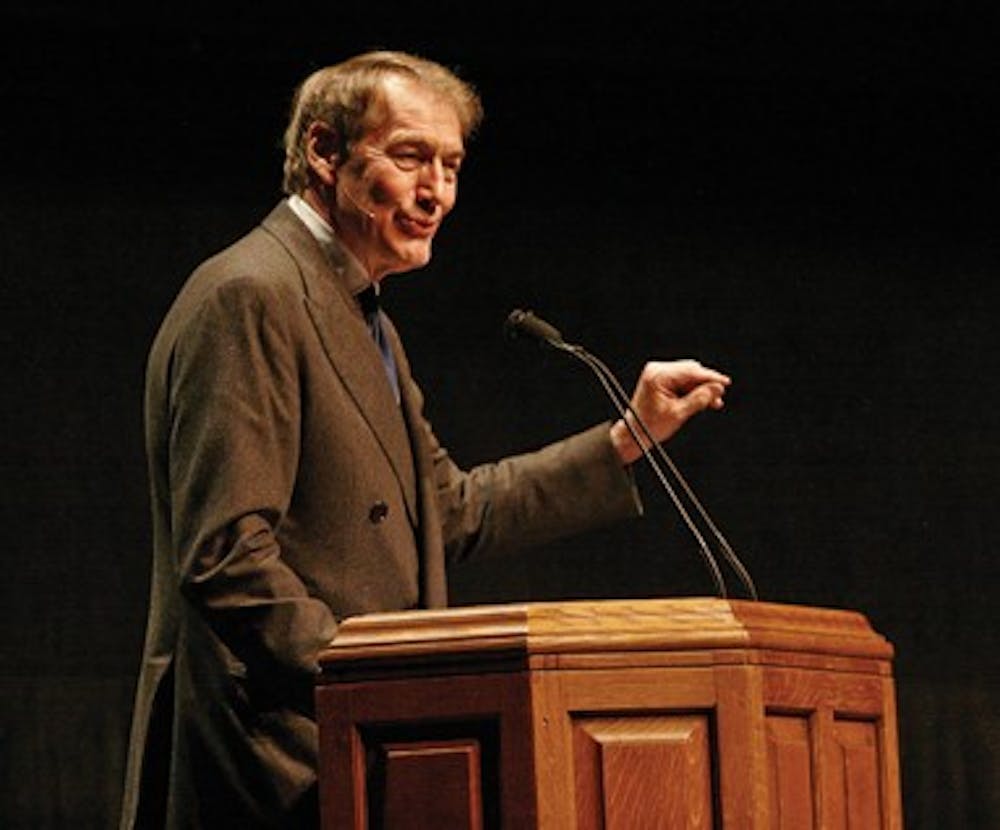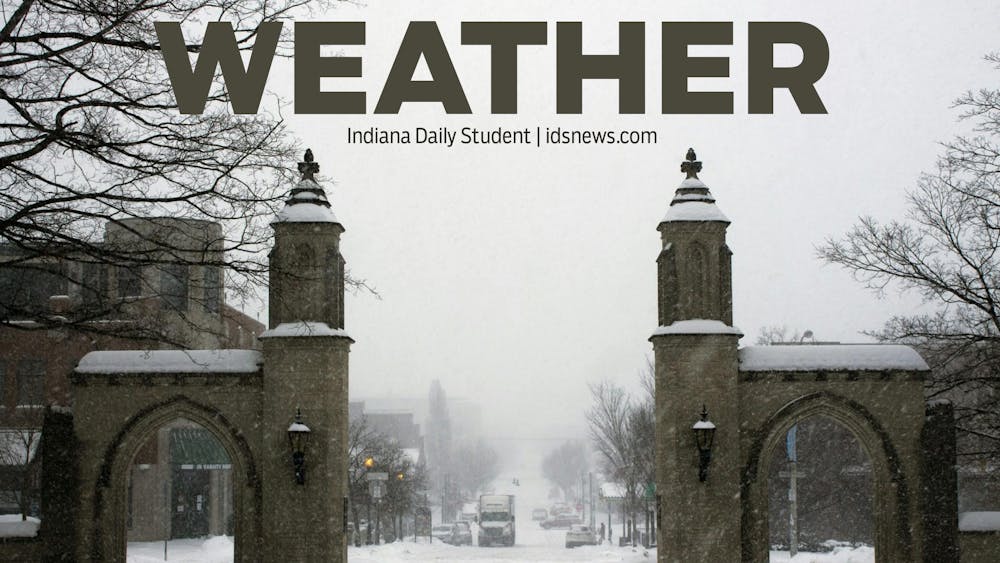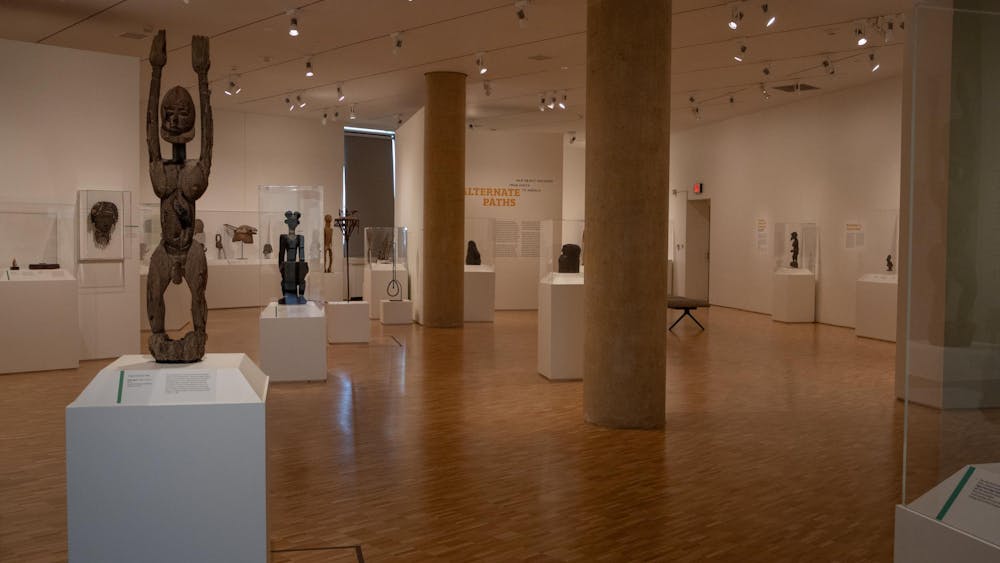Revolutions and ideas are shaping the world, and questions are making them possible, journalist Charlie Rose said Sunday at the IU Auditorium.\n“What I do is ask questions. I don’t have a lot of answers,” Rose said.\nRose, who spoke at the auditorium as part of IU ArtsWeek 2008, said a good question reveals character, and listening is crucial. He argued for finding the hidden meaning in what people are saying.\nSenior Charlie Wettersten said Rose doesn’t ask “the toughest questions,” but “he’s intelligent, he’s critical.”\nFor 16 years, Rose has interviewed people as diverse as American presidents, foreign leaders, writers and pop music artists on his PBS show “Charlie Rose.”\nRose said his sense of curiosity concerning everything from politics to football drives his questions. He said it would be great if someone could go to the library and hear a conversation with Jesus or Shakespeare.\nRose also talked about arts and politics and how they are connected. \n“What we get from artists is an understanding of who we are,” he said.\nWhile some might question the United States’ confidence and reputation, Rose said it is a country that stands for free expression more than any other country.\n“The greatest export we have (is) our culture,” he said.\nRose said that because the world has problems that transcend borders, its solutions need to transcend borders. He cited the New York Philharmonic playing in North Korea as an example of transcending borders.\nWhile admitting it won’t solve the country’s problems with North Korea, Rose said it will help. \nRose said it was hard to interview political candidates because they tend to self-censor. He said he wants to get at politicians’ character and what they stand for.\nIt’s important, he said, to think about what’s changing in the world and what questions will bring access to a candidate’s character and leadership ability.\nRose said the great revolutions of modern times are in the environment, the digital realm, science and the global economy. He said the U.S. graduate schools and many Nobel Laureates have fueled technological advances that have made the country a leader, with countries like China trying to catch up. He said if no one asks questions, the U.S. will lose its lead.\nJunior Eric Cox said that while Rose has his own biases, “he tries not to let them get in the way.” He said Rose just tries to tell a story, and in the process, he interviews a wide variety of people and gets an understanding of the different moods of the country.
Charlie Rose says people should ask good questions

Get stories like this in your inbox
Subscribe





